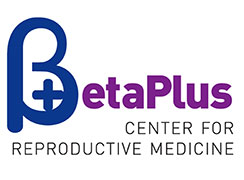These days women decide to get pregnant later because of their careers and circumstances of life, even though age plays a limiting role in achieving pregnancy. A largest number of eggs, around 6-7 million, is found in week 20 in a female baby still in mother’s womb. From that moment on until menopause, eggs cannot be reproduced but instead they are being spent at high rates until the very end, when a woman enters menopause. In puberty, the number of eggs is only around 300.000 and their rapid decline begins around the age of 37 when ovaries are left with only about 25.000 eggs. In addition, eggs of better quality are spent earlier in life, in your twenties, so that in your thirties and forties you are left with eggs of poorer quality. Poor egg quality is the main reason for spontaneous miscarriages as you become older (less than 10% in the twenties and more than 35% in your forties). Besides being left with eggs of poor quality, women in their forties may have suffered from different general and gynecological conditions which increase the risk of infertility, spontaneous miscarriages and unsuccessful pregnancies.
In a classic study from 1950-ies (Tietze C. Fertil Steril) the author analyzed fertility in women in an American religious cult where contraception had been forbidden. Overall infertility rate was only 2,4% and the average age for giving birth to the last baby was 40.9. After the age of 34, 11% of women did no longer get pregnant, 33% of them did not get pregnant after 40 and after the age of 45, 87% of women did not get pregnant any more. This is a good example even for modern times because spontaneous pregnancies from own eggs are very rare after the age of 45 and almost never in women who have not been pregnant before.
Age plays a dominant role in the success of assisted reproduction procedures. It is considered that about a third of women who postpone their pregnancy to the age of 35 will be infertile and about a half of women will be infertile when they are 40. Pregnancy of women older than 40 is rare in many infertility centers and very often those women are recommended egg donation as an option. The reason is that women in their forties conceive much more easily using eggs donated from a younger woman. This also proves that poor egg quality is the main reason for infertility as women become older.
Therefore, if a woman is older than 42 or 43 and if her response to infertility treatment is low (low number of eggs from ovarian stimulation, low percentage of insemination, consecutive unsuccessful embryotransfers), then there is high probability that infertility treatment will not be successful. Should she even manage to conceive, there is a great chance of a miscarriage or giving birth to an unhealthy baby (risk of giving birth to a baby with Down syndrome grows rapidly with age). This also applies to women who experience early menopause which means their ovaries have been exhausted already in their twenties or thirties. In these cases, egg donation is recommended and the highest number of babies born by mothers in their mid forties is a result of a pregnancy achieved by using an egg donated by a younger woman.




